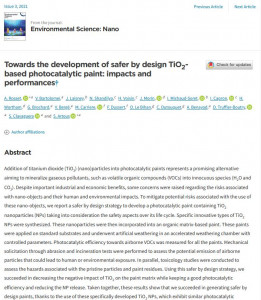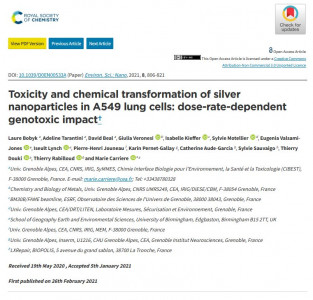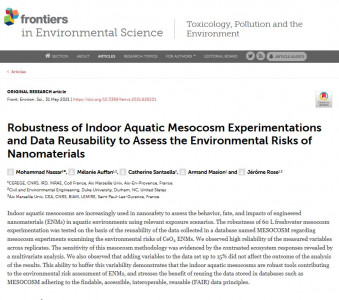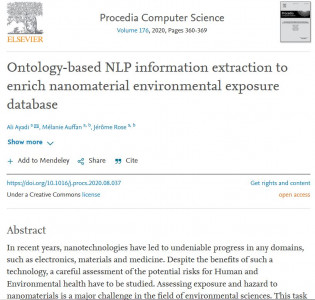Dear colleague
Thilo Hofmann and myself are organizing session 13e "Natural and Engineered Nanoparticles: Analysis, Processes and Relevance in the Environment" at the Goldschmidt conference in Boston August 12-17. We would like to encourage you to submit an abstract to this session. We already have some great speakers:
• Helen Hsu-Kim Duke (University-CEINT) (Keynote)
• Mike Hohella (Virginia Tech)
• Ralf Kägi (EAWAG)
• Greg Lowry (Carnegie Mellon University).
If you haven’t already done so, please submit your abstract to session 13e.
Please do not hesitate to forward this message to your colleagues.
Feel free to contact us with any question you may have (masion@cerege.fr , thilo.hofmann@univie.ac.at)
Abstracts are due by Friday March 30 at:
https://goldschmidt.info/2018/abstracts
ONLY ONE WEEK LEFT BEFORE SUBMISSION DEADLINE
Below is a full description of our session.
We are looking forward to seeing you in Boston this summer.
Armand Masion & Thilo Hofmann
session #13e "Natural and Engineered Nanoparticles: Analysis, Processes and Relevance in the Environment".
Natural and engineered nanoparticles are ubiquitous in the environment and represent a relevant fraction of the reactive surface area on the planet. They form, transform and are in continuous interaction with their environment. As the environmental conditions change, so do their appearance, mobility and functions in the environment what determines the fate of nanoparticles. While natural nanoparticles (often referred to as colloids) are a part of our environment since the earth formed, engineered nanoparticles are only recently adding to the pool of particulate matter in the environment. The scope of this session is on the apparent similarities and differences of natural and engineered particles, how to analyze them, to distinguish them in environmental matrices and track their translocation, transformation and interaction with nutrients and contaminants in soils, sediments and groundwater. We look especially for contributions dealing with analytical strategies for tracking natural processes and distinguishing engineered nanoparticles as well as transformation and degradation of particles and their coatings under varying environmental conditions, the interaction of natural organic matter with nanoparticles and the nanophases as pollutants and pollutant vectors. We value submissions looking at the role of size, surface chemistry and water chemistry as determinant of the behavior and fate of nanoparticles as well as biological and biochemical reactions.









